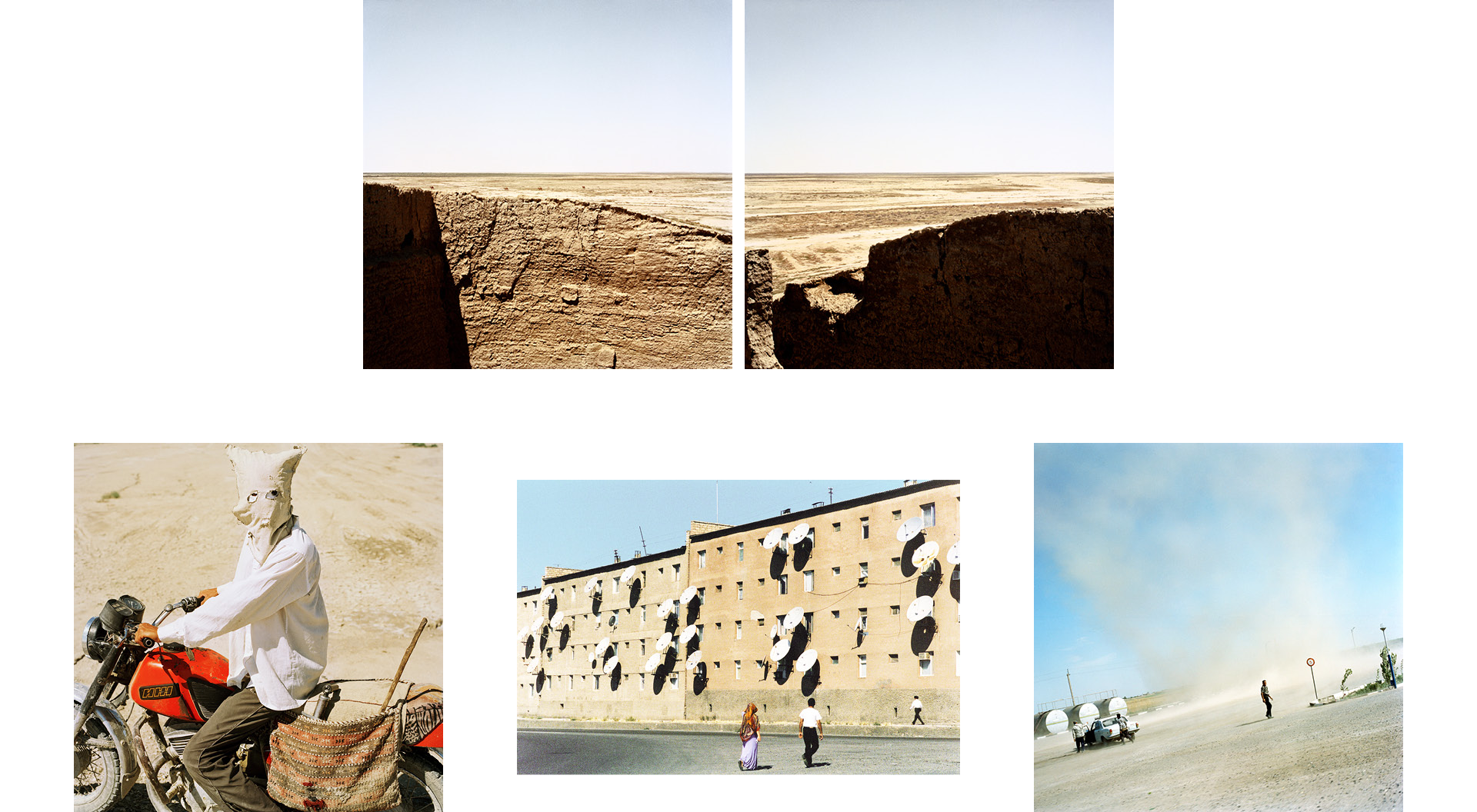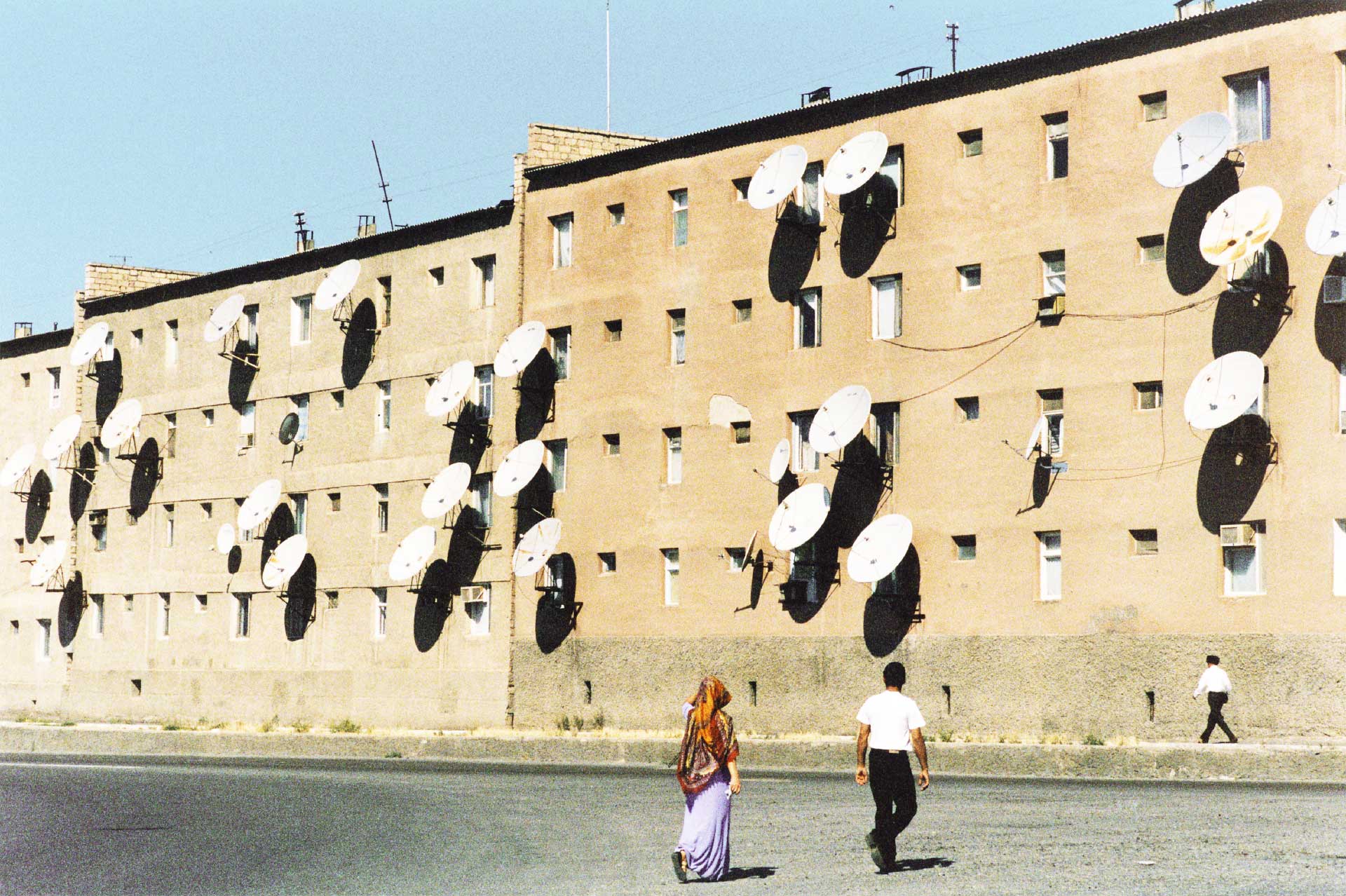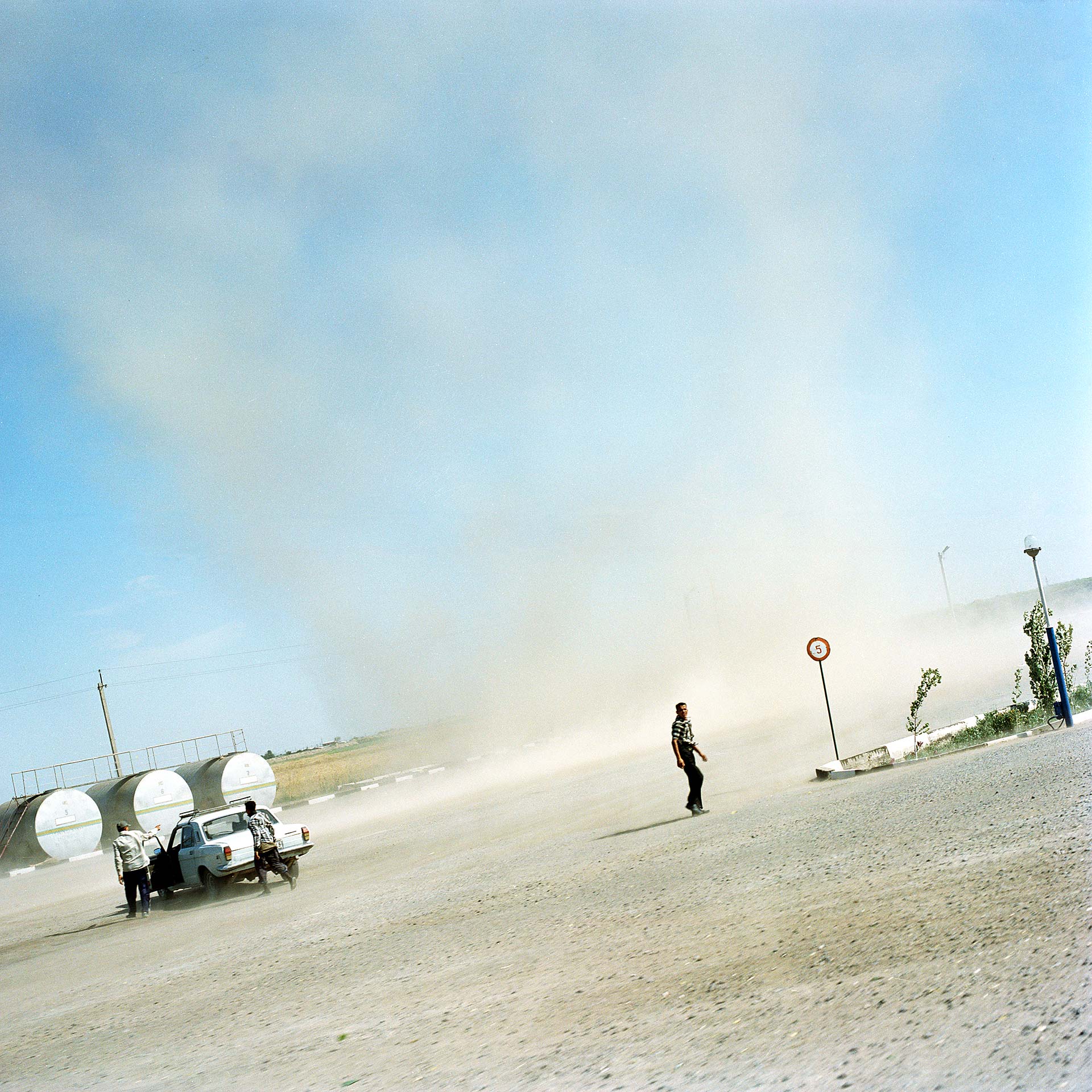2005
Turkmenistan – A Journey under Surveillance
The authoritarian and idiosyncratic policies and despotism of President Saparmurat Niyazov, who has ruled gas- and oil-rich Turkmenistan since independence in 1991 and who declared himself Head or Father of All Turkmens – a nomadic nation that never experienced statehood before the 20th century – has isolated his country from the international community more than the vast deserts ever did. His personality cult has largely replaced regular education, with schoolchildren brought up mainly on Niyazov’s own moral and quasi-spiritual guidance, the Ruhnama.
Such are the conditions in a country straddling a region that saw the birth of oasis culture, and that was probably the site of the missing link that facilitated cultural exchange between the civilizations of the Indus Valley and Mesopotamia 5000 years ago.
Turkmenistan holds some of the world’s largest reserves of oil and natural gas and has built its economy almost entirely on those two commodities. The revenues are directly under the control of the president, and little trickles down to the population at large. Extreme poverty, unemployment, and the collapse of the education and health systems have dramatically degraded living conditions, and as Turkmenistan has become a major drug corridor, so life expectancy has fallen and prostitution and drug consumption have become widespread. Since the regime refuses to consider any economic reform, most international financial institutions have cut their involvement to a minimum, although foreign businesses continue to get support from their governments even while investing in lucrative projects that promote the president’s personality cult.
The reportage was commissioned and published by GEO, Hamburg, and became part of Travelling through the Eye of History.
Assignments
- 2010–2018Afghanistan – Glacier Walks in Times of War
- 2012Burma Revisited
- 2009Swat – Mutilated Faces
- 2007Kazakhstan – Oil Great Game in Central Asia
- 2005Turkmenistan – A Journey under Surveillance
- 2004China – Farewell to Kashgar
- 2001–2010Afghanistan – A Thirty Years War
- 2001China – The Transformation of Xinjiang
- 2001Afghanistan – Drought and Famine
- 2000Kashmir – Paradise Lost
- 2000Ulanbataar – Children’s Underworld
- 2000London – Going Southwark
- 1999Indonesia – East Timor: Times of Agony
- 1998–1999Borneo – Destruction Business
- 1998Afghanistan – Economy of Survival
- 1997Cambodia – Quiet Days in Pailin
- 1996Tajikistan – Forbidden Badakshan
- 1995Iran – Roads to Isfahan
- 1994–the presentAngkor – The Mercy of Ruins
- 1994Bangladesh – Sandwip: An Island disappears into the Sea
- 1993Calcutta – Durga Puja
- 1992–1996Indochina – Legacies of War
- 1992Cambodia – Resurrecting a Country
- 1991–1992Burma – Behind the Bamboo Curtain
- 1990Ahmedabad – Cotton Mills
- 1987China – The Pulse of the Earth
- 1978–1980Greece – Lavrion Silver




